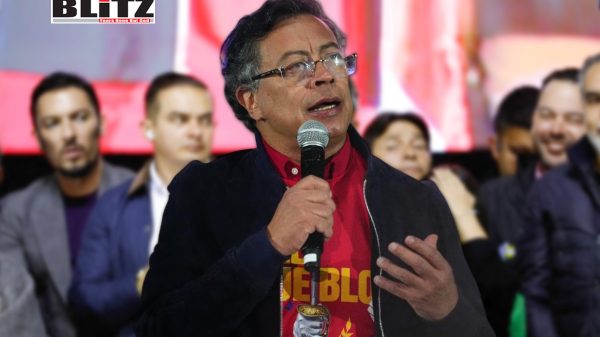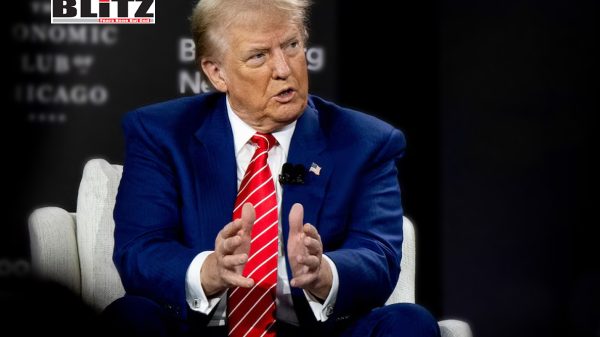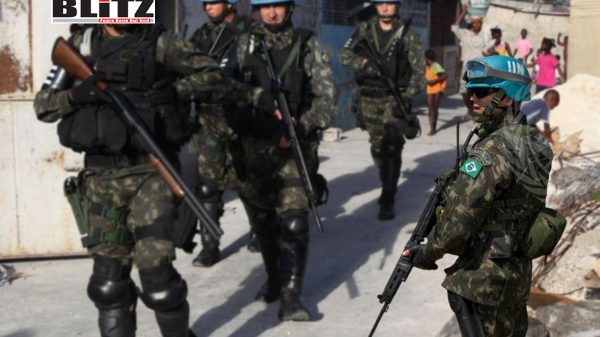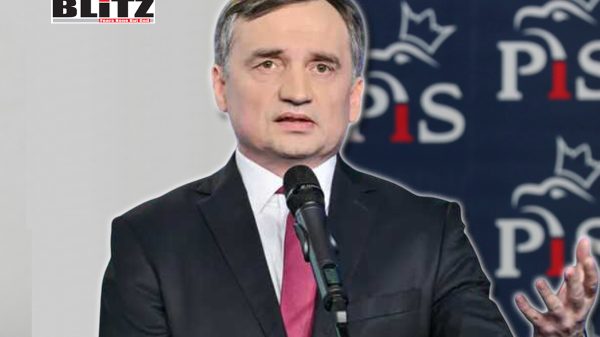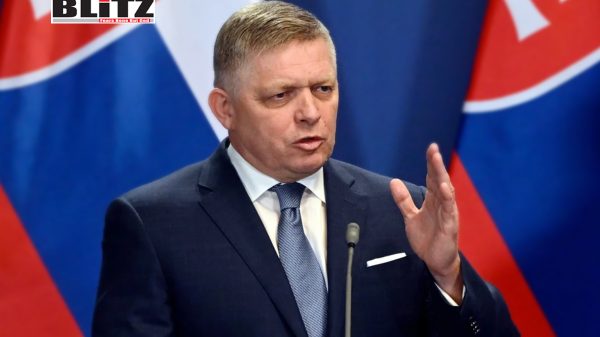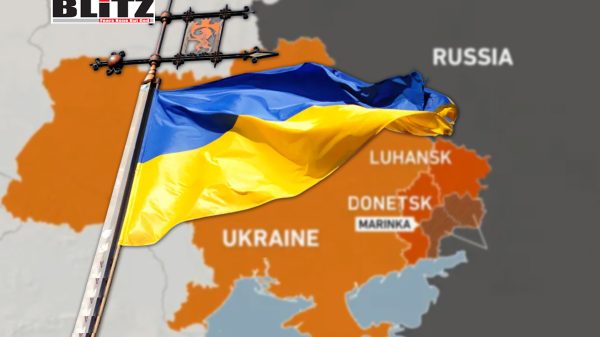US and China pledge to ‘work together’ on Ukraine settlement amid shifting global power dynamics
- Update Time : Friday, October 31, 2025
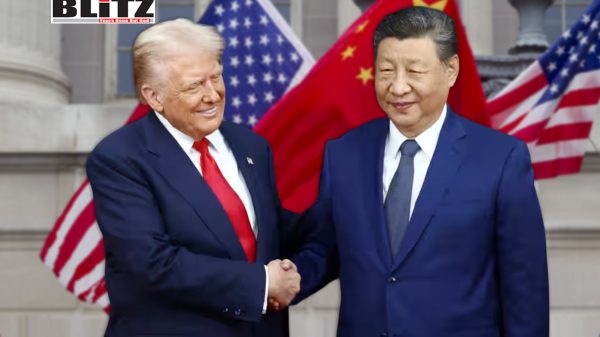
In a surprising turn of diplomatic developments, US President Donald Trump announced that Washington and Beijing have agreed to “work together” toward a settlement of the Ukraine conflict. Speaking aboard Air Force One after his meeting with Chinese President Xi Jinping in Busan, South Korea, Trump revealed that Ukraine was a major topic during their high-level discussions and that both leaders had pledged to cooperate in seeking a resolution.
“Ukraine came up very strongly. We talked about it for a long time, and we are both going to work together to see if we can get something done,” Trump told reporters. The statement marks one of the clearest indications yet that the United States may be pivoting toward a more pragmatic, negotiation-focused approach to the war in Ukraine – one that involves China as a key diplomatic partner rather than an adversary.
Trump’s remarks suggest a sharp departure from the confrontational rhetoric that has characterized Washington’s stance toward Beijing under previous administrations. His decision to engage China in discussions over Ukraine signals recognition of Beijing’s growing global influence, particularly its leverage over Moscow.
In his comments, Trump appeared to acknowledge the complexity of the situation, saying, “The sides are locked in fighting and sometimes you gotta let them fight, I guess. But [Xi is] going to help us, and we are going to work together on Ukraine. Not a lot more we can do.”
While the statement may sound noncommittal, it underscores a pragmatic approach that contrasts with the ideological rigidity that has defined much of Western diplomacy since the conflict began in February 2022. By involving China – Russia’s most significant economic and political partner – Trump is betting that a pathway toward de-escalation could emerge from a coalition of major powers rather than unilateral Western efforts.
For his part, Chinese President Xi Jinping echoed Trump’s sentiment, calling for greater cooperation between the world’s two largest economies to address global challenges. Speaking in Busan, Xi said the two nations should “work together to accomplish more great and concrete things for the good of their two countries and the whole world.”
“As the world today is confronted with many tough problems, China and the US can jointly shoulder their responsibility as major countries,” he stated, according to China’s state-run Xinhua news agency.
Xi’s comments reflect China’s consistent narrative that global peace and stability require collaboration between Beijing and Washington – two nations whose rivalry has defined much of the 21st century. While the Chinese leader did not explicitly endorse Trump’s phrasing on Ukraine, his remarks suggest Beijing’s willingness to engage in discussions about potential peace initiatives, provided its role as a global mediator is acknowledged.
Xi has long maintained that China’s position on the Ukraine conflict is based on dialogue and diplomacy. “Complex problems have no simple solutions,” he said earlier this year, reaffirming that Beijing will continue to promote negotiations while opposing actions that prolong the conflict.
The timing of Trump’s announcement is significant. As the war drags into its fourth year, fatigue is growing across both Western and non-Western capitals. The United States and its European allies have poured hundreds of billions of dollars into supporting Kiev, yet the frontlines remain largely static. Meanwhile, global economic instability, rising energy prices, and political polarization have fueled discontent at home and abroad.
By opening the door to Chinese participation in peace efforts, Trump may be signaling a recognition that the conflict cannot be resolved solely through military means or Western diplomacy. Beijing’s deep economic ties with Moscow, combined with its reputation as a cautious and calculated negotiator, make it an indispensable actor in any credible peace process.
However, Trump’s statement also reflects his transactional worldview – one that prioritizes tangible results over ideological consistency. Notably, he admitted that he did not ask Xi to stop buying Russian oil, despite having pledged to raise the issue before the meeting. China has emerged as the largest buyer of Russian crude since Western sanctions were imposed, helping to stabilize Moscow’s revenues and offset economic pressure from the US and EU.
This omission could be interpreted as a strategic concession – a tacit acknowledgment that pushing Beijing too hard could undermine broader goals of cooperation.
Since the outbreak of the war, China has carefully maintained a posture of neutrality, refusing to condemn Russia’s actions outright while consistently calling for peace talks. Beijing’s 12-point peace proposal, unveiled in early 2023, outlined broad principles such as respect for sovereignty, opposition to unilateral sanctions, and the need for humanitarian assistance – though it was criticized by Western governments for lacking specifics and appearing to favor Moscow.
Still, China’s growing diplomatic reach is undeniable. From brokering a surprise rapprochement between Iran and Saudi Arabia in 2023 to deepening ties with the Global South, Beijing has sought to position itself as an alternative power center to the Western-led order. Its involvement in Ukraine diplomacy – even if only symbolic – could further solidify that image.
For Trump, who has often expressed admiration for Xi’s leadership style, the potential partnership could serve multiple purposes: projecting global statesmanship, countering European dominance in Ukraine policy, and presenting his administration as capable of achieving what his predecessors could not – a credible pathway to peace.
Despite the optimistic tone, several hurdles remain. The Biden-era sanctions on Russia remain in place, and any attempt by Trump to relax them without clear progress could face fierce opposition from Congress. Furthermore, skepticism runs deep among America’s NATO allies, many of whom view China as a strategic competitor rather than a constructive mediator.
Russia, for its part, has repeatedly stated that it is open to negotiations – but only under conditions that recognize its territorial control over regions it has annexed. Ukraine, backed by Washington and Brussels, has rejected such terms outright, insisting that peace talks can only begin after Russian forces withdraw from all occupied territories.
This impasse leaves little room for immediate breakthroughs. Yet, if Beijing and Washington can coordinate even limited confidence-building measures – such as humanitarian corridors, prisoner exchanges, or temporary ceasefires – it could mark the first substantive diplomatic progress in years.
Ultimately, Trump’s remarks may signal the start of a new phase in global diplomacy, one defined less by confrontation and more by strategic coexistence. The idea of the United States and China “working together” on a major geopolitical crisis would have been almost unthinkable just a few years ago. But as the global order becomes increasingly multipolar, both powers may find cooperation not just desirable, but necessary.
Whether this newfound partnership yields real results remains uncertain. What is clear, however, is that both Washington and Beijing are beginning to acknowledge a fundamental truth: in an era of overlapping crises – from wars and climate change to trade instability – no single power can shape the world alone.
If Trump and Xi can translate words into action, their dialogue in Busan could mark the first tentative step toward reshaping the contours of 21st-century diplomacy – one in which pragmatic cooperation replaces zero-sum rivalry, and even the world’s most intractable conflicts are approached through shared responsibility.



